Why the West needs a more united Europe
Europe's need for real unity exceeds the EU's feeble powers
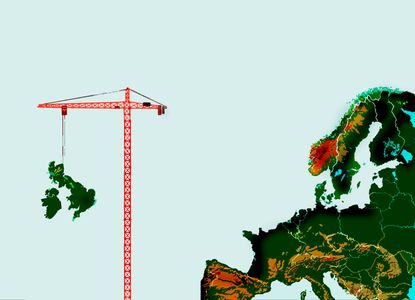

With Britain sharply divided over the wisdom of bailing on the shaky European Union — that "Brexit" will be put to a vote on June 23 — former London Mayor Boris Johnson warned the Telegraph that the continent's motto ought to be Divided We Stand. "Napoleon, Hitler, various people tried this out," he said of unification in scary times, "and it ends tragically. The EU is an attempt to do this by different methods." Different than, you know, armed invasion and conquest.
Weak and overweening as the EU may be, it's the least of Europe's problems. The flood of refugees opened up by the Syrian conflict is a bonanza for terrorists. Recruitment efforts have homed in on Europe's most promising and vulnerable targets — not just Muslim ghettos but whole countries, like Bosnia, where Western officials are scrambling to head off another front in the unfolding worldwide war. And that's to say nothing of autocratic Turkey's demand of billions in cash to handle refugees of its own, or Russia's intensifying provocations.
Europe cannot handle these problems nation-state by nation-state. Even the best prepared of its more powerful members (France, Germany, and that's probably it) are struggling — hemorrhaging money, straining to keep their heads above water on crime and terror, and facing down deepening political fractures at home. Britain has never been part and parcel of Europe, but it's rash for even an Englishman to raise the specter of a quasi-Hitlerian bureaucracy. Unled, Europe is primed to charge off in all directions — a messy and likely bloody process historically hard to stop once it begins.
Subscribe to The Week
Escape your echo chamber. Get the facts behind the news, plus analysis from multiple perspectives.

Sign up for The Week's Free Newsletters
From our morning news briefing to a weekly Good News Newsletter, get the best of The Week delivered directly to your inbox.
From our morning news briefing to a weekly Good News Newsletter, get the best of The Week delivered directly to your inbox.
Europe's need for real unity exceeds the EU's feeble powers. To be sure, we can all breathe a sigh of relief that today's continentals lack both the revolutionary fervor that helped out Napoleon and the reactionary derangement that fueled the Nazis' march. But in the absence of these ideological obsessions, Europe has struggled to channel its energies toward a single dynamic goal. Even NATO — still absolutely essential to holding the West together in a position of strength — was a defensive alliance, one that expanded eastward mostly out of concern that if it did not then it wouldn't know what to do.
If history is any guide, there may be a dark comfort in crisis. The West has proven remarkably resilient in the face of disaster. Judging by the seething hatred and anger fueling much of Europe's extremist politics, the warlike spirit that has long haunted the European conscience is probably much farther from extinction than many would like to admit. There is a chance that, if things continue to take a dire turn and the EU finds itself helpless, that energy can be channeled away from debilitating civil war or cross-border conflict and toward a muscular but recognizably humane effort to restore order.
This would require some kind of broad coordination, some prime mover, some leader with authority and operational control. Who is that? Not Angela Merkel, whose troubles have been crystallized by the surprise discovery of a severed pig's head, written with insults, outside her constituency office. (It's the second such head — associated with disapproval of her refugee policy — to makes an appearance this year.) And not the likes of Marine Le Pen — who hopes to forge a de facto alliance among Europe's right-wing nationalists, but who shows no interest in putting European leadership at the top of France's agenda.
Europe faces a basic chicken and egg problem. No leader to create the unity that is needed, and none of the popular consensus that might push such a leader to the fore. As dire as the threat posed by Russians and Islamists will become, not even the U.S. can save Europeans in disarray from their own worst enemies: themselves.
Sign up for Today's Best Articles in your inbox
A free daily email with the biggest news stories of the day – and the best features from TheWeek.com
James Poulos is a contributing editor at National Affairs and the author of The Art of Being Free, out January 17 from St. Martin's Press. He has written on freedom and the politics of the future for publications ranging from The Federalist to Foreign Policy and from Good to Vice. He fronts the band Night Years in Los Angeles, where he lives with his son.
-
 Geoff Capes obituary: shot-putter who became the World’s Strongest Man
Geoff Capes obituary: shot-putter who became the World’s Strongest ManIn the Spotlight The 'mighty figure' was a two-time Commonwealth Champion and world-record holder
By The Week UK Published
-
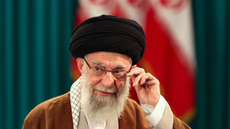 Israel attacks Iran: a 'limited' retaliation
Israel attacks Iran: a 'limited' retaliationTalking Point Iran's humiliated leaders must decide how to respond to Netanyahu's measured strike
By The Week UK Published
-
 Crossword: November 2, 2024
Crossword: November 2, 2024The Week's daily crossword puzzle
By The Week Staff Published
-
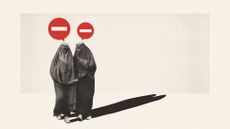 Has the Taliban banned women from speaking?
Has the Taliban banned women from speaking?Today's Big Question 'Rambling' message about 'bizarre' restriction joins series of recent decrees that amount to silencing of Afghanistan's women
By Harriet Marsden, The Week UK Published
-
 Cuba's energy crisis
Cuba's energy crisisThe Explainer Already beset by a host of issues, the island nation is struggling with nationwide blackouts
By Rebekah Evans, The Week UK Published
-
 Putin's fixation with shamans
Putin's fixation with shamansUnder the Radar Secretive Russian leader, said to be fascinated with occult and pagan rituals, allegedly asked for blessing over nuclear weapons
By Harriet Marsden, The Week UK Published
-
 Chimpanzees are dying of human diseases
Chimpanzees are dying of human diseasesUnder the radar Great apes are vulnerable to human pathogens thanks to genetic similarity, increased contact and no immunity
By Harriet Marsden, The Week UK Published
-
 Deaths of Jesse Baird and Luke Davies hang over Sydney's Mardi Gras
Deaths of Jesse Baird and Luke Davies hang over Sydney's Mardi GrasThe Explainer Police officer, the former partner of TV presenter victim, charged with two counts of murder after turning himself in
By Austin Chen, The Week UK Published
-
 Quiz of The Week: 24 February - 1 March
Quiz of The Week: 24 February - 1 MarchPuzzles and Quizzes Have you been paying attention to The Week's news?
By Sorcha Bradley, The Week UK Published
-
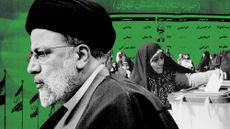 Will mounting discontent affect Iran election?
Will mounting discontent affect Iran election?Today's Big Question Low turnout is expected in poll seen as crucial test for Tehran's leadership
By Sorcha Bradley, The Week UK Published
-
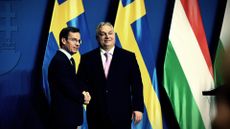 Sweden clears final NATO hurdle with Hungary vote
Sweden clears final NATO hurdle with Hungary voteSpeed Read Hungary's parliament overwhelmingly approved Sweden's accession to NATO
By Peter Weber, The Week US Published